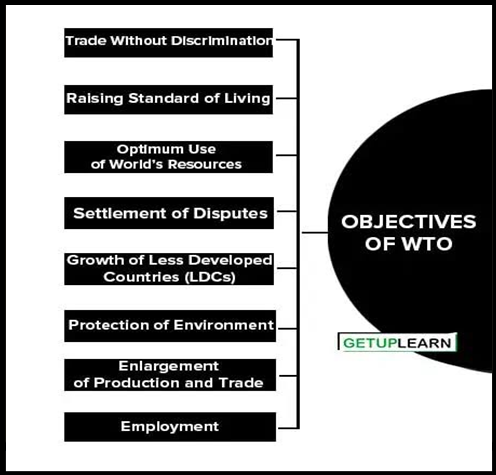INDIA CHALLENGES WTO PANEL RULING ON ICT IMPORT DUTY
Why in the News / Background:
- India and the EU engaged in seven months of negotiations regarding the Information and Communication Technology (ICT) import duty case.
- The EU initiated dispute settlement proceedings against India in 2019, contesting the import duty imposed on various ICT products.
- The EU argued that India’s duty practices were inconsistent with global trade norms, adversely impacting €600 million worth of its technology exports to India.
Source: Getuplearn
Breakdown of Settlement Talks
- Settlement talks, seeking a mutually agreeable solution (MAS), concluded without resolution.
- The EU officially filed for the adoption of the panel report on December 7, prompting India to appeal against it on December 8 at the World Trade Organisation (WTO).
Indian Perspective
- Commerce Ministry revealed that during negotiations, the EU demanded customs duty concessions on specific goods.
- India rejected this request, citing violations of WTO rules, emphasizing that such concessions are appropriate only within the context of a free trade agreement.
Indian ICT Import Duty Policy
- India imposed higher duties on ICT products to promote electronic manufacturing, supported by the production-linked incentive scheme.
- Despite concerns about the dispute affecting electronic manufacturing initiatives, India’s electronic product exports have seen growth amid a broader decline in goods exports during the current fiscal.
Implications
- The dispute has potential ramifications for India’s efforts to enhance electronic product manufacturing, a critical sector aimed at reducing dependency on Chinese imports.
- With challenges in appointing judges to the WTO’s appellate body, decisions on ongoing disputes, including the India-EU case, may face prolonged delays.
- Pending disputes and expected reforms are likely to be discussed at the WTO’s 13th Ministerial Conference in February next year.
About WTO:
- The WTO, established on January 1, 1995, under the Marrakesh Agreement, replaces GATT.
- It’s a crucial intergovernmental organization within the United Nations System, regulating global trade rules.
- Operating with 164 member states, it represents over 98% of global trade and GDP.
- Governments collaborate to establish, revise, and enforce international trade regulations.

 Source: Getuplearn
Source: Getuplearn

